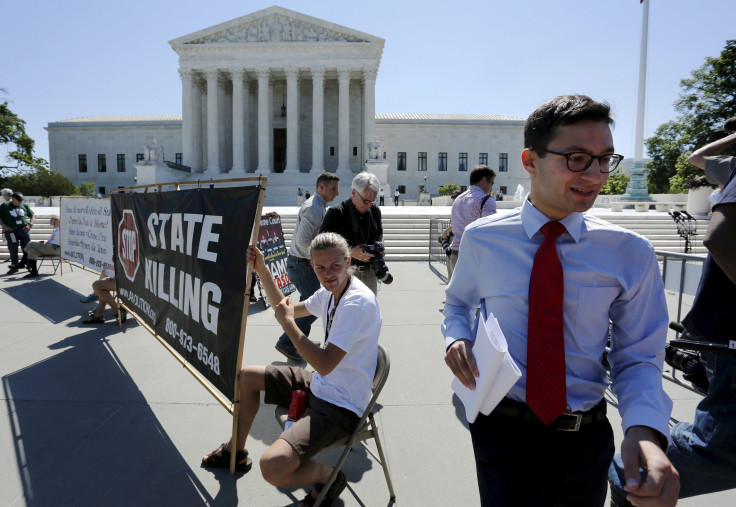Who Is Richard Masterson? Texas Killer's Execution Imminent As US Supreme Court Considers Appeals

Lawyers for a Texas man convicted of killing a female impersonator in 2001 have filed multiple appeals with the U.S. Supreme Court trying to stay the man’s execution, which is scheduled for Wednesday, the Associated Press reported. Lawyers for Richard Masterson, 43, argued in court documents that a medical examiner should not have told jurors the cause of Darin Shane Honeycutt's death was strangulation, that Masterson's confession was affected by drug use in jail and that Masterson's trial lawyers were subpar.
"Mr. Masterson's case presents a perfect storm of attorney incompetence and neglect combined with a severely mentally ill, suicidal defendant who did not kill anyone," Gregory Gardner, one of Masterson’s lawyers, said in filing to the Supreme Court.
Masterson said recently he took Honeycutt home from a bar for sex, and attempted to put pressure on his neck to enhance the sexual experience, after which Honeycutt fell off the bed and later died, the Houston Chronicle reported. Because he had prior convictions on his criminal record, Masterson fled from the apartment, stealing Honeycutt’s car. He was caught in Florida and gave a confession to police shortly after.
Masterson’s lawyers have also challenged a state law that keeps the identity of the provider of the drug used in Texas lethal injections secret. Lawyers for the state, however, have said no new evidence about the death have been raised that haven’t been raised before.
.@BuzzFeedNews on #RichardMasterson's innocence claim. https://t.co/hQQ3GamMYJ @DPInfoCtr #Texas #deathpenalty @TasneemN
— Robert Dunham (@RDunhamDPIC) January 20, 2016At his trial, Masterson recanted the confession he gave to police after Honeycutt’s death, and his lawyers have since said the medical examiner's testimony that Honeycutt died of strangulation was swayed by his knowledge that Masterson gave a confession, the Intercept reported. The examiner, Paul Shrode, has twice been punished for having inaccurate cause of death conclusions. Shrode was reprimanded in 2001 for a wrong cause of death conclusion and was fired in 2010 as the El Paso medical examiner for another wrong cause of death conclusion.
© Copyright IBTimes 2024. All rights reserved.











